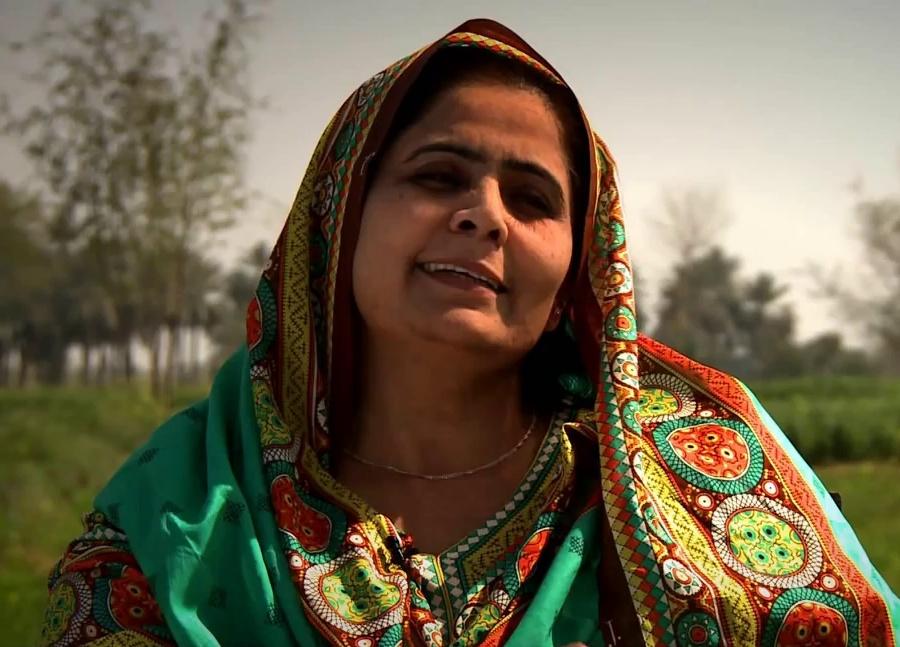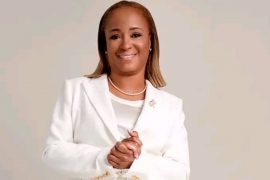Every woman is a rare gem, every woman is special, and every woman has something to offer to her society, it all depends on her (personal) determination and her belief.
Does she see herself as incompetent, unqualified, impotent, and unfitted? Or does she considers herself as perfect, able, skilled, gifted, and available irrespective of background or circumstances that may be standing as a stumbling block?
Ghulam Sughra Solangi, a light to the women community of Pakistan was born on March 2, 1970, in a little village called Muhammad Arab Solangi, somewhere in Pakistan.
Although her father Muhib Ali was a teacher in a government school, Solangi did not have access to schooling based on the local traditional belief that bans females from seeking for education.
She wanted to school, she held a strong attraction for education but she was bound by laws which she could not break free from.
At age 12, she was married off to a man who abandoned her when she was 20 with two children because he found her unattractive and unlearned. After her divorce she had to begin life all over, it was tough and very challenging moving back to her parent’s house with her children. She faced shame and depression, was mocked and close to committing suicide.
She thought about a way to escape the misery was education was her best solution. Often times she tried to shut out the thoughts of seeing the impossibilities that surrounded it, but they kept coming because her love for books was stronger than what she could conquer.
She was beaten several times by her brothers who frowned at her idea of going to school but Solangi was persistent, she couldn’t let go because love had taken her away ー the love for education.
Finally, Solangi won the battle when her brothers gave up on the fight to allow her to fulfill her wish. She began studying on her own, and eventually, one of her brothers came forward and allowed an older cousin to help her. The road to success is never a smooth ride, there were obstacles and potholes, people ridiculed and humiliated her but she didn’t lose heart.
She engaged herself in embroidery making and worked every day until late in the evening, through embroidery she was able to sustain herself and her kids.
After four years, of personal studying, she passed the matriculation exam and decided to leave her father’s house to be on her own and pursue education, she succeeded in obtaining a bachelor’s degree with so much enthusiast and confidence in her, becoming the first female high school graduate.
Her journey to the destination of recognition and reward for her struggles started when she was appointed as a teacher in the first school for girls in her village, but there was a huge problem. She was the first teacher in the school but there were no girls to tutor because parent refused to send their female children to school based on some cultural reasons and lack of money.
The quest for a solution was Solangi’s headache. She sought for ways to change the situation for the better and discovered that the major problem centered on the fact that the women in her society were highly restricted from participating in family decision making.
It is obvious that gender inequality has an upper hand in the world because men occupy the higher positions of authority, so to cure gender inequality is to raise the standard of women.
This idea became Solangi’s perfect solution. She stepped out to invest in the lives of the women by elevating their statuses within the household to enable them to contribute as key players in their families’ economic well-being.
She knew that if she was able to achieve this, the women would have authority within their homes to send their daughters and even their sons to school.
She started out by trying to convince the women and also men to release their girl-child to the western education. She also enlightened them on the benefits that are attached to such a decision. As expected it was not a win-win situation because she was an exposed divorcee and not a good example for their female children, for they also thought that she might teach their children to run away from their homes. But she didn’t give up and before long, there was a turn up, but not enough to satisfy Solangi’s hunger to educate all the female children in her community.
A terror flood hit the community in 1992, and destroyed so much that the villagers had to start their lives all over again. With help of her family, she gathered relief items which were used to reach out to the villagers.
At this point, she realized that she had to tackle the problem from its root which was to raise the standard of living of the women by a fund-generating means.
She spoke to the village women about her idea to create an association called Marvi Rural Development Organization (MRDO). The organization was involved with taking up the welfare of rural women and making them aware of their fundamental rights. Almost everyone was against her idea including her brothers but her ambition was strong and she was able to achieve her desires. She gathered like-minded members who worked with her in forming savings groups and increasing the women’s awareness about education, health, human rights, and social development.
They pursued partnerships with organisations like ILO and OXFAM to sponsor their micro credit initiatives and they also sought for capacity building training from renowned organisations.
With conscious efforts, she built the organization responding to women in various communities especially those in remote areas and currently, MRDO serves over 30 households in Pakistan.
She also collaborated with government department and engaged various means to provide health care and other services to the entire communities.
Solangi has excelled in touching the lives of many and giving back to humanity in progress.




